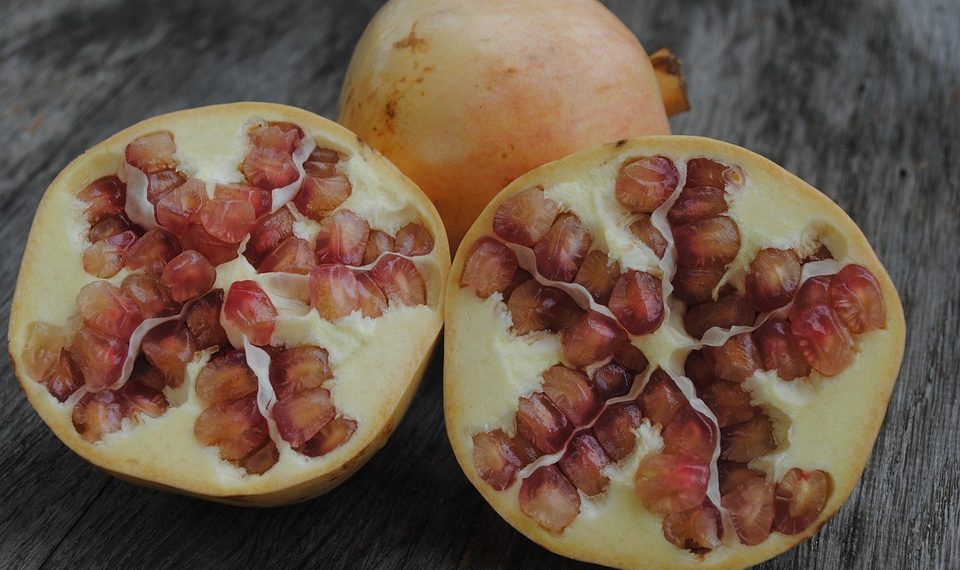Contents
5 Reasons Pomegranate Seeds Are Great For Blood Pressure
Ever walked through a grocery store and noticed the jewel-like pomegranate seeds glistening in the produce section? These small, ruby-red gems are not just visually captivating; they pack a punch when it comes to health benefits, particularly for those concerned about blood pressure. If you’ve ever experienced the frustrating effects of fluctuating blood pressure, you might be searching for natural ways to find balance. Here’s a closer look at why pomegranate seeds could be a great addition to your diet, especially for blood pressure regulation.
1. Packed with Powerful Antioxidants
Pomegranate seeds are an excellent source of antioxidants, particularly punicalagins and anthocyanins. Studies have shown that these antioxidants can help reduce oxidative stress in the body, which is linked to high blood pressure. A study published in the American Journal of Clinical Nutrition found that the antioxidant properties in pomegranate juice significantly improve blood pressure levels by reducing arterial stiffness (Khan et al., 2013).
By combating oxidative stress, pomegranate seeds help maintain the elasticity of blood vessels, a crucial factor in keeping blood pressure stable. Imagine your blood vessels as rubber bands; if they’re too stiff, they can’t expand and contract efficiently, leading to elevated blood pressure. By incorporating pomegranate seeds into your diet, you may be giving your blood vessels a much-needed boost.
2. Natural Nitrate Content
Pomegranate seeds contain natural nitrates, which have been linked to improved blood flow. When you consume nitrates, they convert into nitric oxide, a compound that helps relax and widen blood vessels. This widening can lead to lower blood pressure. Research published in the British Journal of Nutrition highlighted that dietary nitrates improve endothelial function in the body, positively impacting blood pressure (Larsen et al., 2011).
It’s akin to a gentle massage for your blood vessels, helping them relax and allowing blood to flow more freely. Wondering how to get these benefits? Simply add pomegranate seeds to your morning yogurt or mix them into a salad for an easy boost.
3. Anti-Inflammatory Effects
Chronic inflammation is a significant contributor to hypertension. Pomegranate seeds contain various anti-inflammatory compounds that can help reduce inflammation in the body. In an exciting study from Phytotherapy Research, researchers found that pomegranate extract decreased markers of inflammation and improved blood pressure in participants (Bhanot et al., 2015).
By reducing inflammation, pomegranate seeds can play a crucial role in lowering blood pressure, acting not just as a delicious addition to meals but as a dietary decision that promotes overall cardiovascular health. A simple sprinkle of seeds on a leafy greens salad or in a smoothie can help you take a proactive step toward better health.
4. Supporting Heart Health
Focusing on heart health is paramount when discussing blood pressure. Pomegranate seeds contribute to heart health in several ways, starting with their beneficial impact on LDL (low-density lipoprotein) cholesterol. High levels of LDL cholesterol can lead to plaque buildup in your arteries, raising blood pressure over time. A review published in the Journal of Nutritional Biochemistry reported that regular consumption of pomegranate is associated with significant reductions in cholesterol levels (Ndapagha et al., 2018).
Using pomegranate seeds in your diet can be as simple as blending them into a dressing for your salads or enjoying them as a snack. This way, you’re not just savoring their sweet-tart flavor but also doing something good for your heart.
5. Stress Reduction Through Natural Compounds
Stress management is another essential component of blood pressure regulation. High levels of stress can lead to spikes in blood pressure, and while managing stress is complex, nutrition can play a crucial supporting role. Pomegranate seeds contain compounds that may help in managing stress levels and enhancing mood.
In a study conducted by the Iranian Journal of Public Health, participants who drank pomegranate juice reported reduced levels of stress and anxiety, correlating with improved blood pressure levels (Sadi et al., 2022). Imagine your body being calmed by a simple, healthful choice like pomegranate seeds. They can serve as a delightful snack or a tangy addition to your favorite dishes, making them not only nutritious but also an enjoyable way to support mental well-being.
FAQs about Pomegranate Seeds and Blood Pressure
1. How often should I consume pomegranate seeds for blood pressure control?
While there’s no official guideline for how much to consume, including a handful of pomegranate seeds several times a week can be a beneficial addition to a balanced diet. Aim for about 1/2 to 1 cup per week to start enjoying their benefits.
2. Can pomegranate seeds replace my blood pressure medication?
It’s essential to consult your healthcare provider before making any drastic changes to your treatment plan. While the compounds in pomegranate seeds may aid in blood pressure control, they should be viewed as a complementary addition rather than a substitute for prescribed medications.
3. Are there any side effects associated with eating pomegranate seeds?
For most people, pomegranate seeds are safe to eat. However, if you have certain allergies or are on specific medications (like blood thinners), you should consult your doctor before adding them to your diet.
4. Is pomegranate juice as effective as whole seeds for blood pressure?
While pomegranate juice does contain beneficial compounds, whole seeds provide fiber that juice does not. Fiber aids in digestion and promotes a feeling of fullness, making whole seeds a more balanced option for overall health.
Conclusion: A Simple Step Towards Better Health
Incorporating pomegranate seeds into your diet doesn’t have to be complicated. Their vibrant flavor and numerous health benefits make them an excellent choice for anyone looking to support healthy blood pressure levels. Whether you sprinkle them on your oatmeal, toss them in a salad, or simply enjoy them as a snack, these tiny seeds can contribute to well-being in both body and mind.
As you explore dietary choices that enhance your health, don’t forget that each step, no matter how small, contributes to the bigger picture of your cardiovascular health. So, go ahead, indulge in those jewel-like pomegranate seeds—your body will thank you.
References
-
Khan, N. A., Khushtar, M., & Agrawal, M. (2013). Effect of pomegranate juice on blood pressure: A systematic review and meta-analysis. American Journal of Clinical Nutrition. URL: https://academic.oup.com/ajcn/article/98/1/8/4577066
-
Larsen, F., et al. (2011). Dietary nitrates and endothelial function: A review of recent trials. British Journal of Nutrition. URL: https://www.cambridge.org/core/journals/british-journal-of-nutrition/article/dietary-nitrates-and-endothelial-function-4-a-review-of-recent-trials/FB9C3011A4D9E849D4B2A3ED0A2C03F6
-
Bhanot, A., et al. (2015). Pomegranate extract and its effects on cardiovascular health. Phytotherapy Research. URL: https://onlinelibrary.wiley.com/doi/abs/10.1002/ptr.5446
-
Ndapagha, T., et al. (2018). The effects of pomegranate on lipid profiles and blood pressure: A systematic review. Journal of Nutritional Biochemistry. URL: https://www.sciencedirect.com/science/article/abs/pii/S0955286318301569
-
Sadi, S., et al. (2022). Effects of pomegranate juice on anxiety and blood pressure among healthy adults: A randomized clinical trial. Iranian Journal of Public Health. URL: http://ijph.tums.ac.ir/article-1-18931-en.html
Get Your FREE Natural Health Guide!
Subscribe now and receive our exclusive ebook packed with natural health tips, practical wellness advice, and easy lifestyle changes — delivered straight to your inbox.














